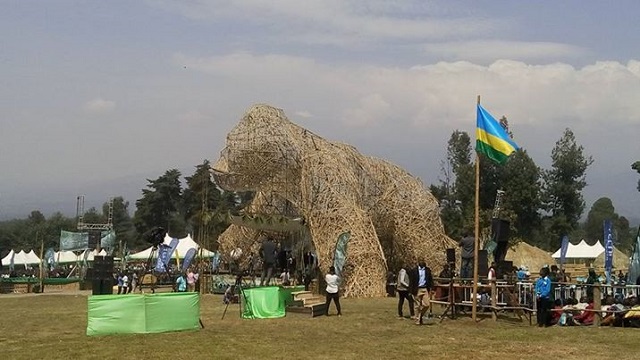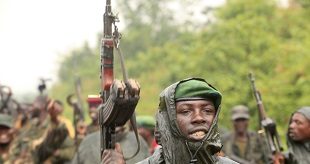
Volcanoes National Park, Rwanda | AFP | Nicaraguan singer Hernaldo Zuniga brought his entire family to trek through the lush forests and mist-shrouded volcanoes of northwestern Rwanda in search of mountain gorillas.
He described their encounter with the critically endangered primates as “an almost spiritual” experience, and said it was the only reason they made Rwanda a stop on a trip taking in a safari in Kenya, and a tour of South Africa.
But Rwanda is no longer content with being a whirlwind stop on a tourist’s itinerary, and is working hard to broaden its appeal beyond its world-famous mountain gorillas while narrowing its niche market to the wealthiest of visitors.
Zuniga counts himself lucky that his family of five scored their permits to see the gorillas before Rwanda’s eyebrow-raising move to double the cost to $1,500 (1,300 euros) per person in May.
“I think that is going to be a drawback for many people. It is just going to be an elite group of people who can pay that,” said Zuniga, a well-known star in Latin America.
For Rwanda however, the price hike is part of a careful strategy to boost conservation efforts while positioning itself as a luxury tourist destination.
“The idea behind (the increase) is that it is an exclusive experience which also needs to be limited in numbers. Our tourism is very much based on natural resources and we are very serious about conservation,” said Clare Akamanzi, the chief executive of the Rwanda Development Board.
It is a high-value, low-impact strategy that has worked well for countries such as Botswana and Bhutan.
– Safe and clean –
The remote, mountainous border area straddling Rwanda, the Democratic Republic of Congo and Uganda is the only place in the world where one can see the gorillas, whose numbers have slowly increased to nearly 900 due to conservation efforts.
Permits in the DRC ($400) and Uganda ($600) are far cheaper, but Rwandan officials are not concerned that they will lose tourists to their neighbours, arguing the country offers an experience that is rare in the region.
Ever since the devastating 1994 genocide in which 800,000 mainly Tutsis were killed, the country has been praised for a swift economic turnaround.
“When you come to Rwanda it is a clean, organised, safe country with zero tolerance for corruption. We have concentrated on creating a good experience,” said Akamanzi, also highlighting a quick visa process.
 The Independent Uganda: You get the Truth we Pay the Price
The Independent Uganda: You get the Truth we Pay the Price



Time will tell if this was a careful strategy. Tapping into highend tourism can be a good strategy but i don’t think it was the right move for a country that is still receiving mostly allocentric tourists. Hands crossed!